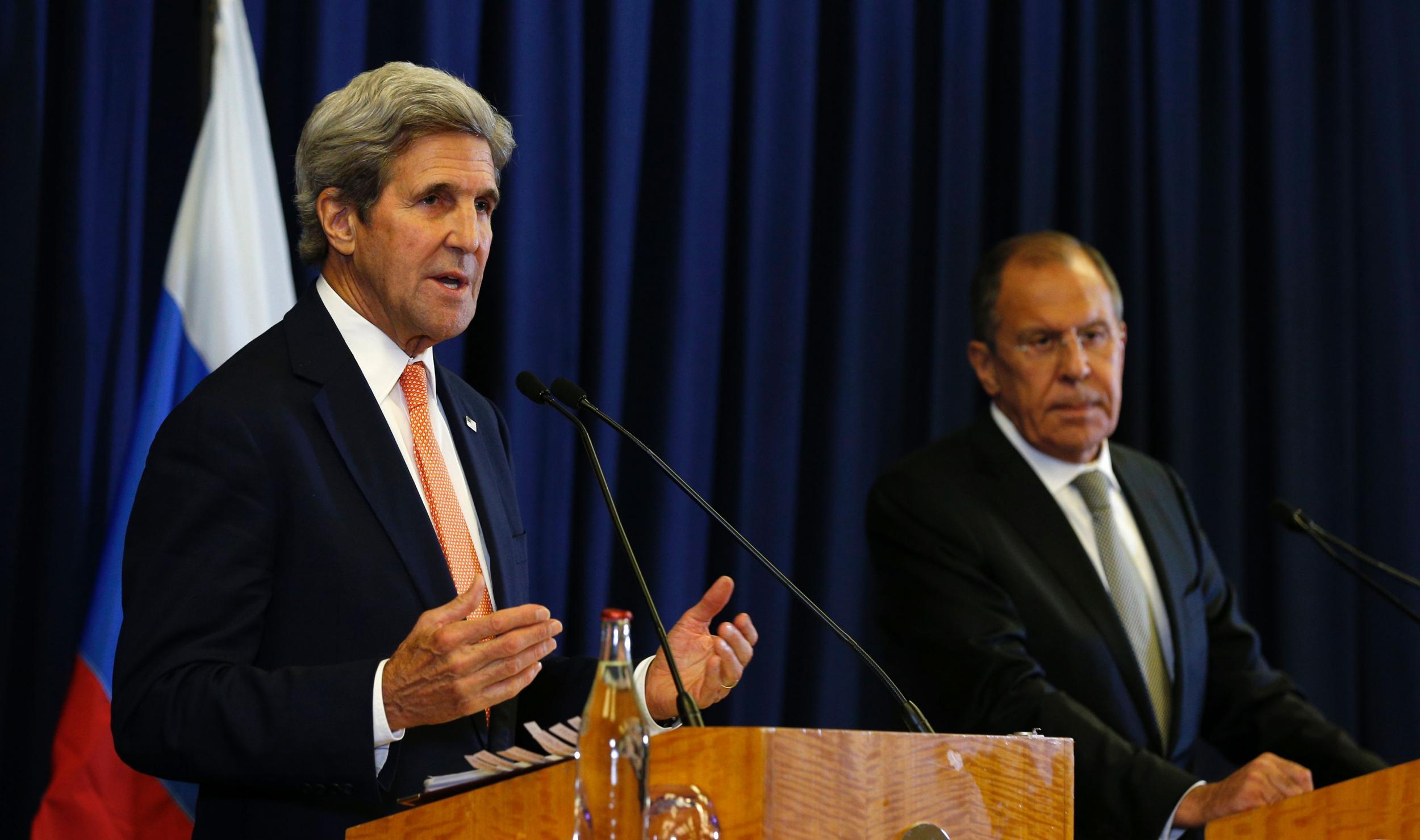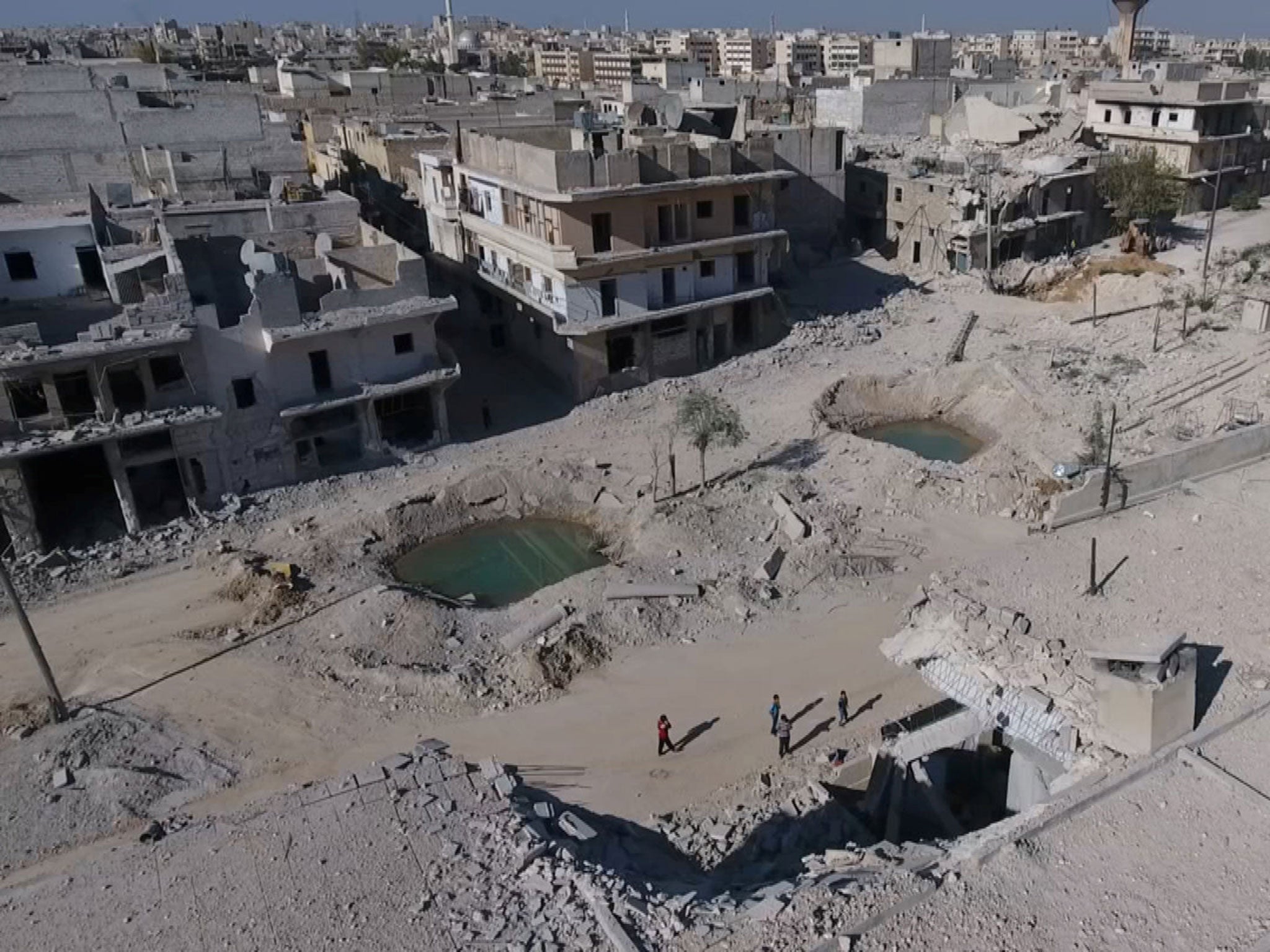The US has 'no plan B' in Syria to stop Russia operating without accountability, experts warn
US Secretary of State defends diplomatic efforts as Aleppo burns under a ferocious Russian-backed attack by the Syrian regime

The US has been boxed into a corner in the face of a huge Russian-backed military escalation in the Syrian civil war, several experts have said.
US Secretary of State John Kerry has been criticised both at home and abroad for continuing to reach out to the Kremlin, which has stated there is “absolutely no prospect" of talks to revive the failed Eid-al-Adha ceasefire deal.
Speaking to reporters from Cartagena in Columbia late on Monday, Mr Kerry defended the US’ diplomatic efforts. “The cause of what is happening [in Aleppo] is [Syrian President Bashar] Assad and Russia wanting to pursue a military victory,” he said. “Today there is no ceasefire and we’re not talking to them right now. And what’s happening? The place is being utterly destroyed. That’s not delusional. That’s a fact.”
Approximately 250,000 people trapped in rebel-held east Aleppo have been subjected to intense bombing since Thursday which has destroyed civilian infrastructure such as emergency response clinics and left almost 500 people dead, activists on the ground say.
Syrian president Bashar al-Assad and Russian leader Vladimir Putin have ignored pleas from the West and besieged residents to cease the campaign, which civilians report has included napalm, cluster bombs, and incendiary devices. Several countries, and Nato, have said the attacks amount to war crimes.
Instead, the air strikes were followed up with a ground assault on several different access points of the city on Tuesday, leading to fierce fighting between government soldiers and allied militias against opposition factions.

“While the US continues to see a ceasefire brokered through agreement with Moscow as the only route to settling the conflict, it is clear that the US is not willing to take the steps necessary to enforce one, and Russia knows that,” said Tim Eaton, a Research Fellow with Chatham House’s Middle East and North Africa Programme.
A precedent was set in July when Russia bombed the Syrian opposition at At Tanf, a base near the Jordanian border used by both US and UK special forces, killing four rebels, a monitor in the NGO sector told The Independent.
“The [US] government buried the story, and it showed Russia it could basically do what it wanted. In retrospect letting them act with impunity then says a lot about the current situation,” the source said.
In a move which will displease Russia, US officials said on Monday that they may let the Gulf states or Turkey arm rebel factions with anti-aircraft shoulder-fired missiles, which is something the US has largely prevented until now.

“The Saudis have always thought that the way to get the Russians to back off is what worked in Afghanistan 30 years ago – negating their air power by giving MANPADS [anti aircraft guns] to the mujahideen," a US official told Reuters on condition of anonymity.
"So far, we’ve been able to convince them that the risks of that are much higher today because we’re not dealing with a Soviet Union in retreat, but a Russian leader who’s bent on rebuilding Russian power and less likely to flinch."
Talks to revive the ailing ceasefire ended abruptly when a UN aid convoy outside Aleppo was bombed on the 19th September. The US blamed Russia for either carrying out the attack or failing to stop Syrian planes from launching it. Russia, in turn, said the US had derailed peace efforts by killing 63 Syrian soldiers in an accidental strike on a Syrian military base near Isis territory in Deir el Zour a few days earlier.

As the ceasefire crumbled, the Assad government announced a fresh campaign to seize Aleppo from the opposition for good.
East Aleppo is the last major rebel stronghold in Syria’s almost six-year-long war. Retaking it would greatly consolidate Assad’s control over all of the country that is not held by Islamist factions such as Isis and Jabhat Fatah al-Sham, the al-Qaeda allied group also known as al-Nusra.
Crushing rebel areas into submission through a combination of air strikes and sieges is a strategy that has worked for Assad in several places.
The renewed campaign, and Russian refusal to engage in talks, does not bode well for the US’ Syria policy or for the country’s suffering civilians.
“In the absence of any progress at the diplomatic level, we can expect to see escalation on the battlefield. Rather than a Plan B, we are likely to see the US and its allies seek to ensure that the rebels remain alive long enough for Plan A to be revived,” Mr Eaton of Chatham House said.
Join our commenting forum
Join thought-provoking conversations, follow other Independent readers and see their replies
Comments
Bookmark popover
Removed from bookmarks